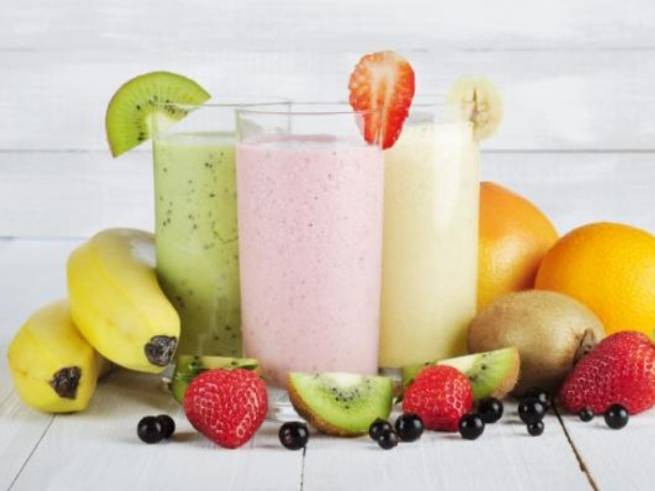Experts often recommend snacking – it helps reduce hunger and diversify your diet. But there are TOP-6 popular snacks that can be harmful – especially if you want to lose weight.
When trying to lose weight or maintain a balanced diet, the question often arises: what snacks should you choose? After all, sometimes Healthy foods can be harmful to the body if consumed incorrectly. Nutritionists offer recommendations on six popular snacks that can cause harm.
Nuts
Nuts are considered a healthy snack, rich in protein, healthy fats and fiber. They can satiate for a long time, but nutritionists warn:
“Because of their high fat content, they are high in calories, so it is very easy to overeat them. The daily norm for nuts is approximately 30 grams.”
Yoghurts
Natural products contain only milk and starter culture. But at the same time, yogurts with fillers have a fairly high content of sugar and modified corn starch, and stabilizers and flavors are added to them. And fillers increase the caloric content of yogurt by about 45%. Therefore, you should know:
“Modified corn starch can complicate digestion and cause intestinal dysfunction, accompanied by discomfort. It also turns into glucose in the body and becomes excess sugar, which is best avoided. It is better to eat pure yoghurts. You can add berries, fruits, chia seeds or sesame seeds to them. And if you really want something sweet, add a spoonful of honey.”
Dried fruits
At first glance, dried fruits are a great snack option. But because the product contains a high concentration of simple carbohydrates, its consumption should be measured. And since dried fruits are fruits deprived of liquid, they have a high sugar content:
“You have to remember that 100 grams of dried apricots is not the same as 100 grams of apricots. 100 grams of apricots contain 12 grams of carbohydrates and 55 calories. But 100 grams of dried fruit contain 67 grams of carbohydrates and 290 calories.”
Protein bars
Supermarket energy bars and sports nutrition are not the same thing:
“The first option is more like a candy wrapped in a themed package. These bars contain a very high percentage of sugar and also contain palm oil. Not only do they not satiate, but they can also lead to jumps in blood glucose. These bars are more of a carbohydrate food than a protein food.”
A diet low in healthy fats and high in palm oil can be harmful to the body. For example, palm oil can replace healthy fats in cells and thus disrupt their functioning. Nutritionists advise:
“When choosing a protein bar, pay attention to the absence of sugar, glucose, glucose-fructose syrup and palm oil. It is also important to look at the protein content. It is desirable that it be 20-25 g per 100 g of product. The best option is 30-35 grams. Then it can really be called a protein bar.”
Even quality bars often contain sweeteners, so you shouldn't overuse them. It's better to consume this product when other snacks are unavailable – for example, on the go. You can make protein bars yourself. To do this, you'll need oatmeal, protein, milk, and nuts. And people for whom limiting carbohydrates is not a goal can also add honey, fruit, or dried fruit.
Breads
Bread made from premium flour is a refined product devoid of any health benefits. But if there is no other snack option, then follow the specialist's advice:
“It is better to choose breads made from whole grain flour. Even more useful are whole grain breads, which contain only grains, cereals and salt. There are also vegetable breads, which may contain flax, vegetable oil, carrots, beets or kelp. They contain much more healthy fats and protein, while other options are rich in carbohydrates.”
Smoothie
Smoothies are a source of vitamins and antioxidants in an easily digestible form. However, when bought in a store, such a drink is mainly a carbohydrate product:
“The saturation time from it will be short. And to really satisfy hunger, you need a large portion of smoothie, because solid food satiates better than pureed food.”
Most store-bought smoothies are a mix of fruit and berry purees, sometimes with added grains. They retain a certain percentage of fiber, so they are healthier than juices. Also, quality smoothies should not contain sugar.
Nutritionists advise making smoothies yourself. You can use milk, kefir or natural yogurt for this. You should add fruits, berries, vegetables, seeds, oatmeal to them. Thanks to the healthy fats and proteins contained in fermented milk products and seeds, the smoothie will become complete and balanced.
And in conclusion
To make sure your snack is beneficial, you need to include all the macronutrients in it:
- protein helps regulate blood sugar levels and keep you feeling full longer;
- fiber helps digestion, regulates sugar and cholesterol levels;
- Carbohydrates should be complex and rich in fiber.
When choosing snack foods, you need to study the composition of the products, control the portion size and remember about variety.







More Stories
Farmer Throws Six Tons of Green Olives Out on the Street
Patras: First school suspension for using smartphone. Parents are outraged
Mitsotakis announces mobile phone boxes in Greek schools